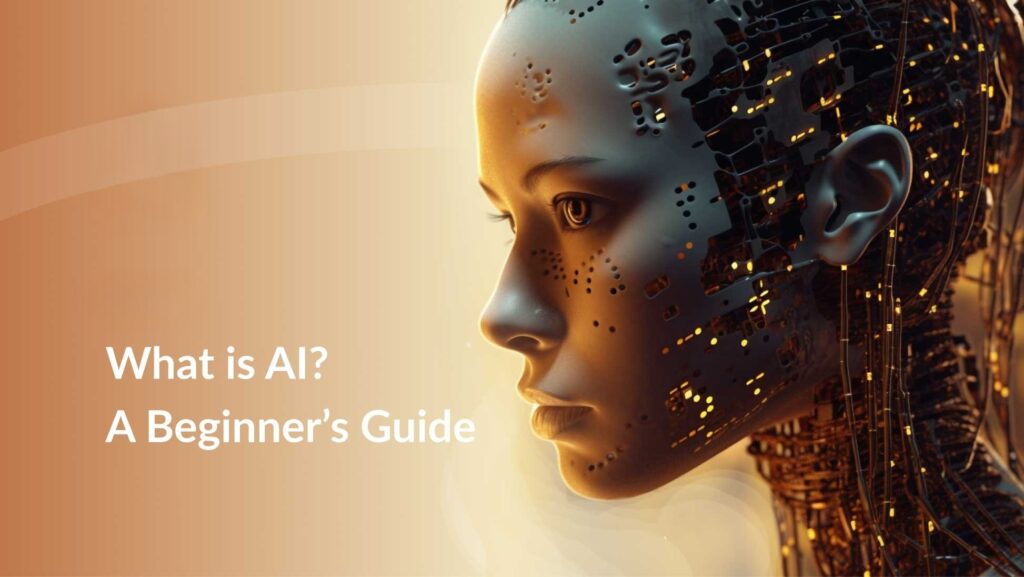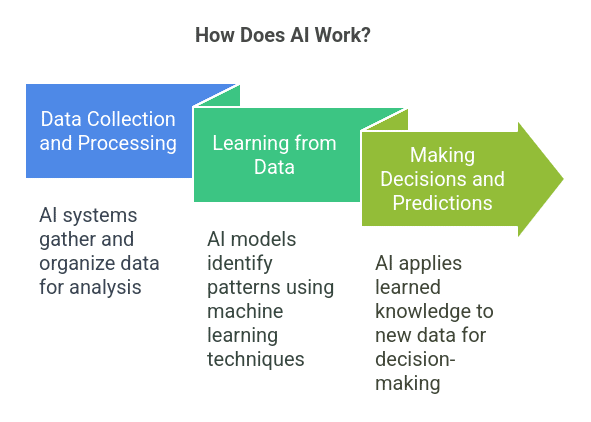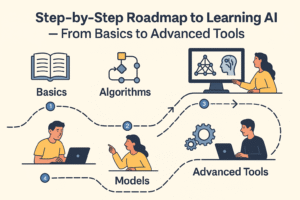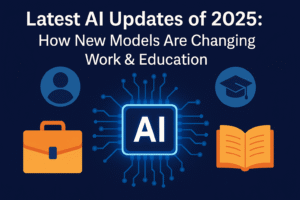
Artificial Intelligence (AI) is no longer a futuristic dream — it’s the invisible assistant guiding what you watch, buy, and even how you study. In 2025, AI is not just for tech experts; it’s part of our everyday lives, making this the perfect time to understand it. Whether you’re a student, a career switcher, a parent, or just curious, this guide will help you grasp AI in both simple explanations and clear, skimmable points.
Understanding AI in Simple Words
AI is the science of teaching machines to learn, think, and solve problems — a bit like humans, minus the coffee addiction. “Artificial” means it’s made by people, and “intelligence” is the ability to understand and act. Today, AI powers industries from healthcare to agriculture, education to finance.
In short: AI = Human-like thinking + Machine efficiency.
Where You’ll See AI Daily
- Voice Assistants like Alexa, Siri, and Google Assistant.
- Streaming Recommendations on Netflix, YouTube.
- E-commerce Suggestions from Amazon or Flipkart.
- Social Media Feeds on Instagram and Facebook.
- India-specific: Detecting UPI fraud, predicting crop yields, speeding up deliveries.
How It Works (Without the Jargon)
AI follows a simple cycle:

- Collect Data — from text, images, audio, and video.
- Spot Patterns — learns what works best.
- Decide & Act — recommends, predicts, or creates.
Key concepts:
- Machine Learning (ML): Teaches AI with examples.
- Neural Networks: Modeled after the human brain for complex problems.
- Generative AI: Creates original content — text, music, designs.
Current AI Trends in 2025
- Agentic AI: Works independently with minimal input.
- Multimodal AI: Understands and processes multiple data types.
- AI in Education: Personalized learning experiences.
- No-Code AI Tools: Create AI apps without programming.
Why Ethics Matter
AI brings power and responsibility. Concerns include:
- Privacy: Who owns your data?
- Bias: Preventing discrimination in AI decisions.
- Jobs: Automation reshaping careers.
- Dependence: Avoiding over-reliance on machines.
India and other nations are enforcing fairness, transparency, and accountability in AI policies.
Learning AI — Even Without Coding
Free resources: Google AI Experiments, Teachable Machine, ChatGPT.
Courses: Coursera’s AI for Everyone, YouTube tutorials in Hindi & English.
Perfect for students, freelancers, and digital marketers alike.
FAQs
Q1: Is AI hard to learn?
No. Start with beginner tools and build up gradually.
Q2: Will AI take away jobs?
Some jobs will change, but many new roles will emerge.
Q3: Can I learn AI without coding?
Yes. No-code tools make AI accessible to everyone.
Q4: AI vs Machine Learning?
AI is the big concept; ML is a subset.
Q5: Which industries use AI most?
Healthcare, finance, e-commerce, education, marketing, transport.


